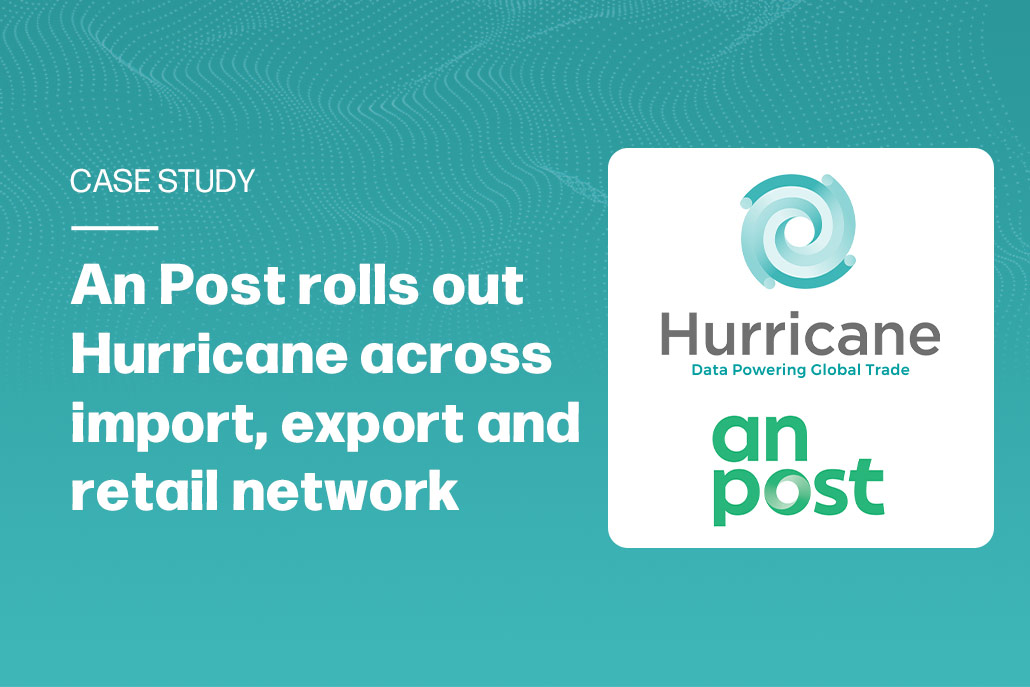In today’s global marketplace, businesses encounter various regulations and compliance requirements that can significantly impact their operations.
One such area of concern is the handling of dual-use goods. It’s now crucial for businesses to grasp the intricacies of Export Control, of which dual-use regulations are part of, to ensure smooth operations, compliance with regulations, and avoid potential legal pitfalls. In this blog post, we’ll delve into the concept of dual-use goods, explore relevant regulations, and discuss how businesses can navigate this complex landscape with the assistance of Hurricane Commerce’s cutting-edge solutions, including Kona.
What Are Dual Use Goods?
Dual use goods refer to items that have both civilian and military applications. These goods can range from — but are not limited to — technology and machinery to chemicals and software. They are typically grouped into control categories based on their potential risk for proliferation or diversion to unauthorised entities or activities. To control the export, transit, and brokering of dual use items, governments implement regulations to ensure that such goods do not end up in the wrong hands.
Control categories items
These categories are defined by international export control regimes such as the Wassenaar Arrangement, the Nuclear Suppliers Group, the Missile Technology Control Regime, and the Australia Group. These multilateral export control regimes outline specific items that are subject to export controls due to their potential dual use nature. Control categories may include items such as advanced materials, electronics, software, telecommunications equipment, and more. The European Union (EU) and the USA’s Bureau of Industry and Security (BIS) and Directorate of Defense Trade Controls (DDTC) have a detailed classification system. The EU’s system is called the Export Control Number (ECN) and the USA’s Export Control Classification Number (ECCN).
Examples of dual use items
Examples of dual use items can vary widely and may include:
- Advanced encryption software: Encryption software designed for secure communication and data protection can have both civilian and military applications. While it is essential for protecting sensitive information various industries, it can also be used for secure military communications and intelligence gathering.
- High-performance computers: Powerful computing systems capable of processing large amounts of data quickly are valuable in both commercial and military contexts. These computers are used in fields such as scientific research, financial modelling, and advanced simulations, but they can also support military operations, including intelligence analysis and weapon systems development.
- Chemicals: Certain chemicals, such as precursors for explosives or chemical weapons, have legitimate civilian uses in industries like pharmaceuticals, agriculture, and manufacturing. However, they can also be repurposed for illicit purposes, making their trade subject to strict regulations.
- Navigation and avionics equipment: Navigation systems, radar technology, and avionics equipment used in civilian aircraft and maritime vessels can also have military applications. These systems are essential for safe and efficient transportation but can also be critical for military navigation, surveillance, and targeting.
- Certain types of sensors and lasers: Sensors and laser technology are utilised in a wide range of industries, including healthcare, environmental monitoring, and manufacturing. However, some sensor technologies, such as infrared sensors and laser rangefinders, have military applications in areas like targeting systems, reconnaissance, and missile guidance.
These examples highlight the diverse nature of dual use items and underscore the importance of robust regulatory frameworks to ensure their responsible trade and use.
Examples of dual use items processed by Hurricane Commerce
The below are examples of dual use items that Hurricane Commerce typically processes but is not an exhaustive list.
- GPS trackers
- Golf range finders
- Night vision glasses
- Plant pathogens
- Electronic components, such as transistors and meters
- Parachutes
- Bacteria, microorganisms and toxins (apart from licensed vaccines)
- Magazines
- Drones
Dual Use Regulations
Governments worldwide implement regulations to control the export, transit, and brokering of dual-use items. These regulations aim to prevent the proliferation of sensitive technologies and protect national security interests. Compliance with dual-use regulations is paramount for businesses engaged in international trade, as violations can result in severe penalties, including fines and legal repercussions.
Here are some key aspects of dual use regulations:
- Licensing requirements: Governments may require businesses to obtain licenses or permits before exporting dual use items. These licenses serve as authorisation to export specific goods to certain destinations and are typically issued following a thorough assessment of the potential risks associated with the export.
- Trade restrictions: Dual use regulations may impose trade restrictions on certain items, prohibiting their export to specific countries or entities deemed to pose a risk to national security or international stability. These restrictions aim to prevent the unauthorised transfer of sensitive technologies to hostile actors or entities involved in illicit activities.
- Export documentation: Compliance with dual use regulations often entails extensive documentation requirements. Businesses exporting dual use items may be required to provide detailed information about the nature of the goods, their intended use, end-users, and final destinations. Accurate and comprehensive documentation is essential to demonstrate compliance with regulatory requirements and facilitate customs clearance processes.
- Compliance Enforcement: Compliance with dual use regulations is enforced through rigorous monitoring, inspections, and penalties for violations. Government agencies responsible for export control, such as the Bureau of Industry and Security (BIS) in the United States or the Directorate-General for Trade of the European Commission (DG TRADE), have the authority to investigate suspected violations, impose fines, and take legal action against non-compliant parties.
Failing to adhere to regulatory requirements can result in severe consequences, including financial penalties, loss of export privileges, reputational damage, and legal sanctions. Therefore, businesses must stay informed about relevant regulations, implement robust compliance processes, and leverage technology solutions to ensure adherence to dual-use regulations and mitigate compliance risks.
What Are Export Controls?
Export controls are measures to ensure security in countries to prevent acts of terror or goods getting into the wrong hands. They encompass various mechanisms such as licensing requirements, trade restrictions, and export documentation, screening people and parties, for example. Expert controls specifically target items of strategic importance, including dual-use goods, to prevent their unauthorised use.
These lists categorise items based on their sensitivity and potential for misuse, helping businesses identify whether their goods are subject to export controls. Common lists include the United States Munitions List (USML), the Commerce Control List (CCL), the European Union Dual-Use List, and the US Specially Designated Nationals (SDN) list.
How Can Hurricane Help?
Hurricane Commerce offers cutting-edge solutions, such as Kona, designed to streamline customs processes, enhance compliance, and mitigate the risk of regulatory violations. By leveraging advanced technologies and industry expertise, Hurricane empowers businesses to navigate the complexities of dual use goods regulations with confidence and efficiency.
By understanding and complying with regulations surrounding dual use goods is paramount for businesses engaged in international trade. By familiarising yourselves with control categories, regulations, and export controls, businesses can ensure compliance and mitigate the risk of regulatory violations.
With Hurricane Commerce’s innovative solutions, navigating the complexities of dual use goods regulations becomes more manageable, enabling businesses to thrive in the global marketplace while upholding the highest standards of compliance and integrity. Get in touch with us today and find out more about how Hurricane Commerce can help you.





